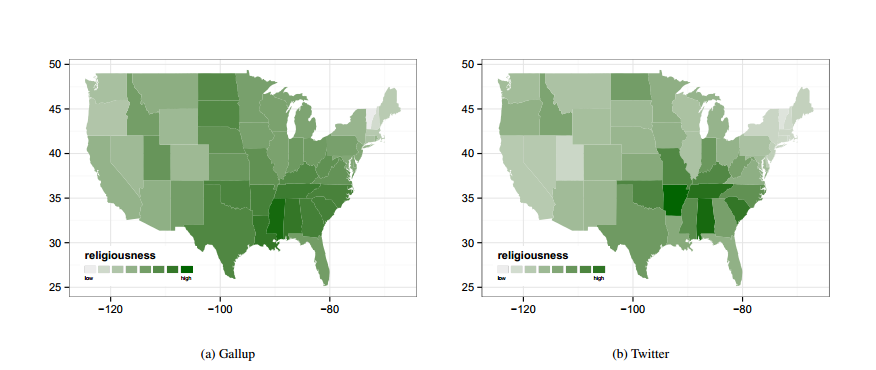Twitter Data Mining Reveals America's Religious Fault Lines
Social media is playing an increasingly important role in religious activity. Computer scientists ask: How is that reflected in the Twitter stream?

October 6, 2014
Religion represents one of the most powerful forces at work in shaping today’s society. So there is a great deal of interest in understanding how religion influences people’s views and tolerance of each other and how this affects other aspects of society such as economic growth.
One potential tool in improving this kind of understanding is the Internet, where religious views flourish. In particular, social networks have expanded rapidly in the last few years, playing an increasingly important role in spreading opinions and information in areas as diverse as politics, sport, science, and so on. However, the role that social networks play in religion has been relatively poorly studied.
Now Lu Chen at Wright State University in Dayton, Ohio, and a couple of pals have analyzed more than 250,000 Twitter users in the U.S. who have declared an affiliation with religions such as Christianity, Hinduism, Islam, Buddhism, and Judaism. The results provide some curious insights into the nature of religious activity on Twitter and how these groups of self-declared users differ from one another.
The team began by filtering the biographies of Twitter users in the U.S. using keywords associated with various different religions. That produced a data set of more than 250,000 users from seven different groups: atheists, Buddhists, Christians, Hindus, Jews, Muslims, and undeclared. Christians were by far the largest group with over 200,000 users, while Hindus were the most poorly represented with only 200 users.
http://www.technologyreview.com/view/531446/twitter-data-mining-reveals-americas-religious-fault-lines/
http://arxiv.org/abs/1409.8578
